While learning C, I made some mistakes and printed elements of a character array that were uninitialized.
If I expand the size of the array to be quite large, say 1 million elements in size and then print the contents, what comes out is not always user unreadable, but seems to contain some runtime info.
Consider the following code:
#include <stdio.h>
main() {
char s[1000000];
int c, i;
printf("Enter input string:\n");
for (i = 0; ( c = getchar()) != '\n'; i++) {
s[i] = c;
}
printf("Contents of input string:\n");
for (i = 0; i < 999999; i++) {
putchar(s[i]);
}
printf("\n");
return 0;
}
Just scrolling through the output, I find things such as:
???l????????_dyldVersionNumber_dyldVersionString_dyld_all_image_infos_dyld_fatal_error_dyld_shared_cache_ranges_error_string__mh_dylinker_header_stub_binding_helper_dyld_func_lookup_offset_to_dyld_all_image_infos__dyld_start__ZN13dyldbootstrapL30randomizeExecutableLoadAddressEPK12macho_headerPPKcPm__ZN13dyldbootstrap5startEPK12macho_headeriPPKcl__ZN4dyldL17setNewProgramVarsERK11ProgramVars__ZN4dyld17getExecutablePathEv__ZN4dyld22mainExecutablePreboundEv__ZN4dyld14mainExecutableEv__ZN4dyld21findImageByMachHeaderEPK11mach_header__ZN4dyld26findImageContainingAddressEPKv
and also,
Apple Inc.1&0$U ?0?*?H??ot CA0?"0ple Certification Authority10U ?䑩 ??GP??^y?-?6?WLU????Kl??"0?>?P ?A?????f?$kУ????z ?G?[?73??M?i??r?]?_???d5#KY?????P??XPg? ?ˬ, op??0??C??=?+I(??ε??^??=?:??? ?b??q?GSU?/A????p??LE~LkP?A??tb
?!.t?< ?A?3???0X?Z2?h???es?g^e?I?v?3e?w??-??z0?v0U?0U?0?0U+?iG?v ??k?.@??GM^0U#0?+?iG?v ??k?.@??GM^0?U 0?0? ?H??cd0??0+https://www.apple.com/appleca/0?+0????Reliance on this certificate by any party assumes acceptance of the then applicable standard terms and conditions of use, certificate poli?\6?L-x?팛??w??v?w0O????=G7?@?,Ա?ؾ?s???d?yO4آ>?x?k??}9??S ?8ı??O 01?H??[d?c3w?:,V??!ںsO??6?U٧??2B???q?~?R??B$*??M?^c?K?P????????7?uu!0?0??0
I believe one time my $PATH environment variable was even printed out.
Can the contents of an uninitialized variable ever pose a security risk?
Update 1

Update 2
So it seems clear from the answers that this is indeed a security risk. This surprises me.
Is there no way for a program to declare its memory content protected to allow the OS to restrict any access to it other than the program that initialized that memory?